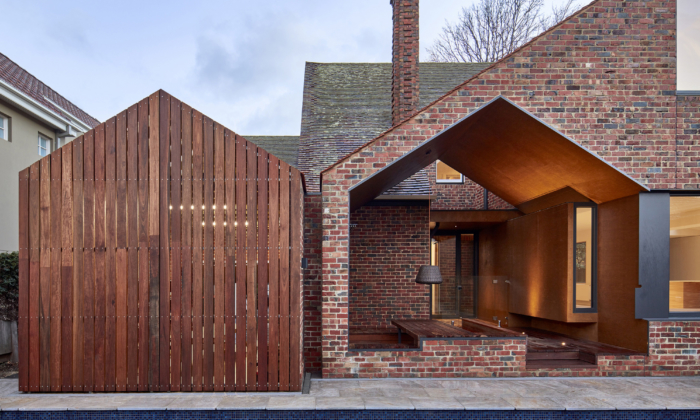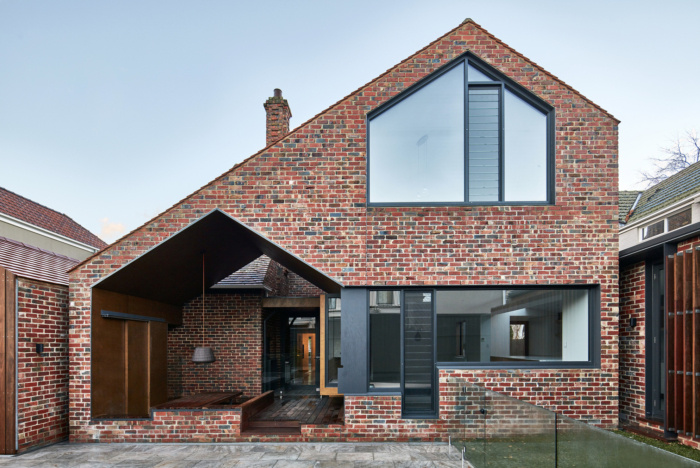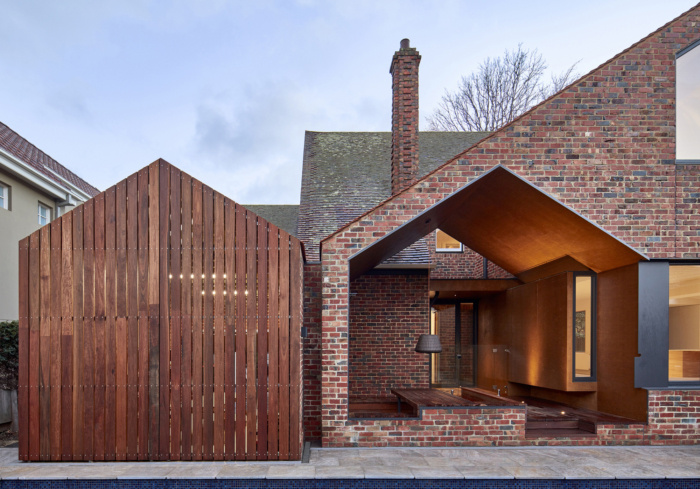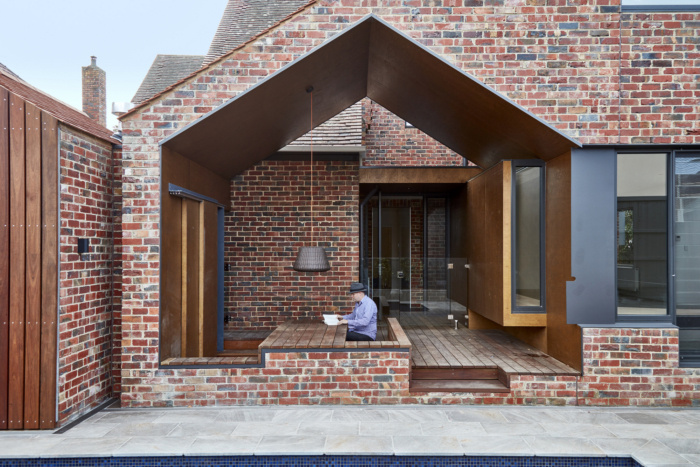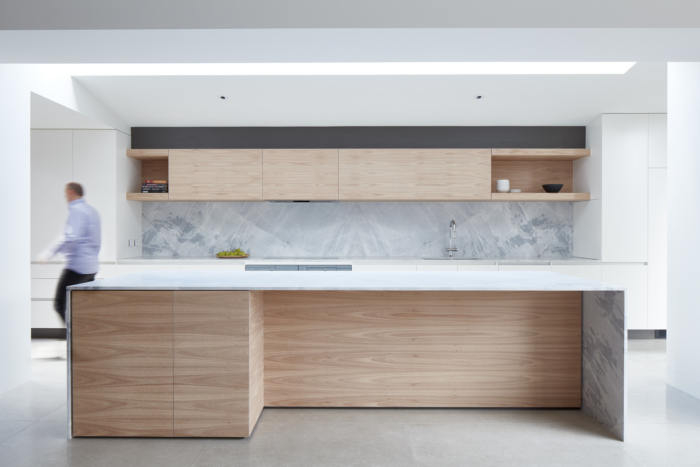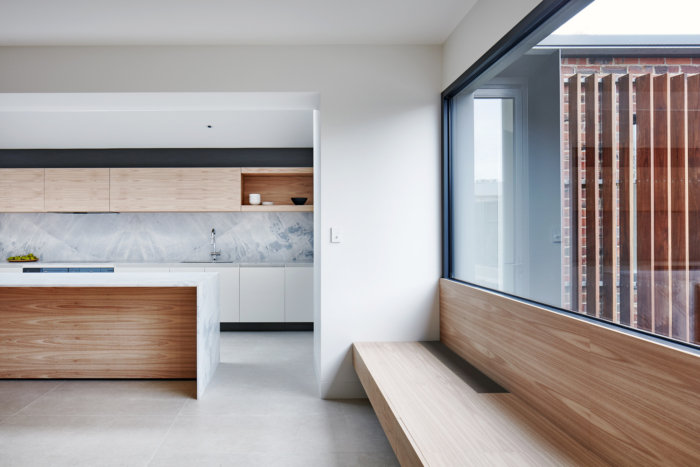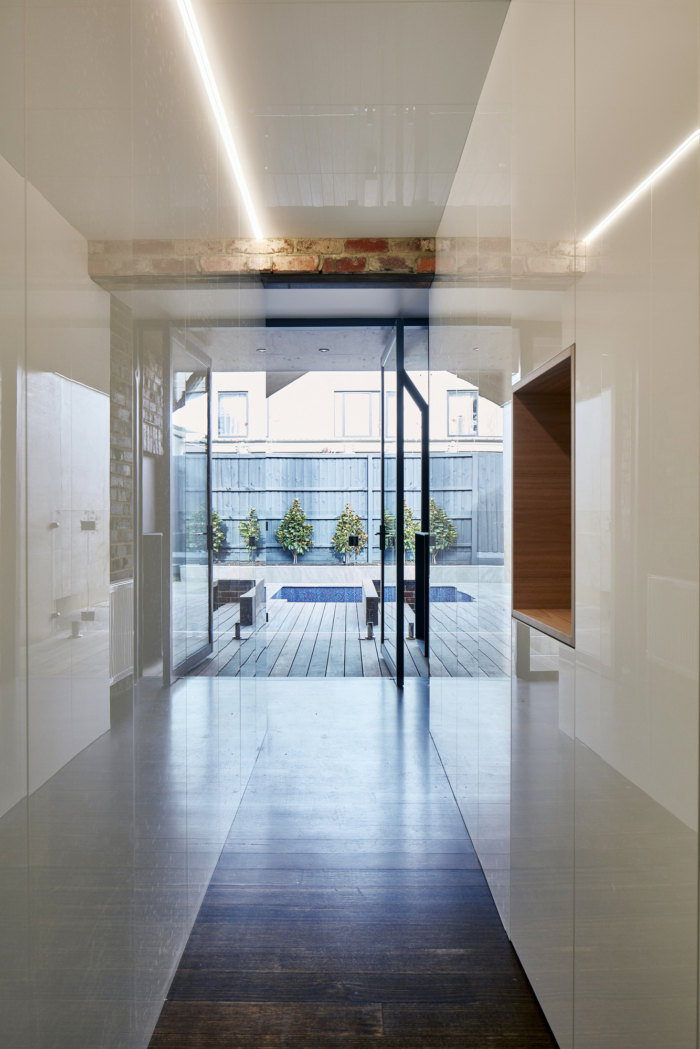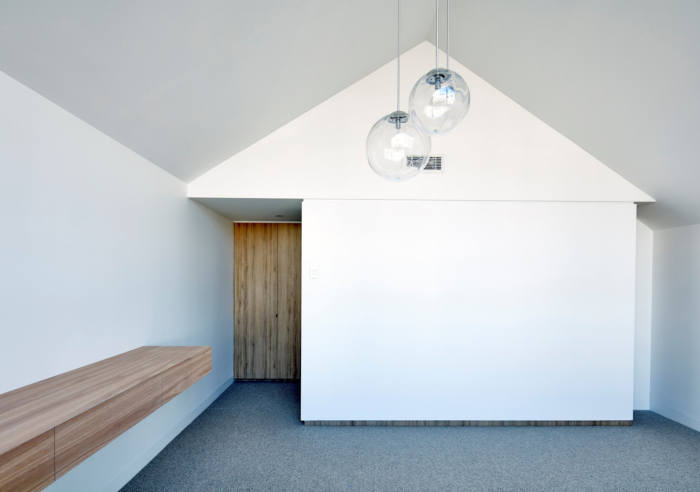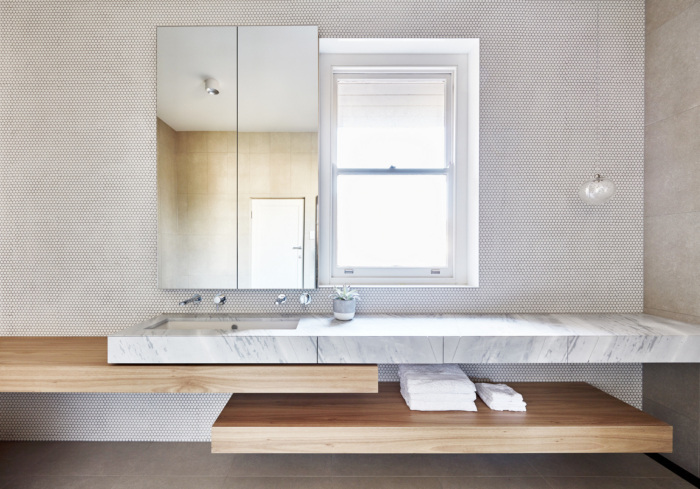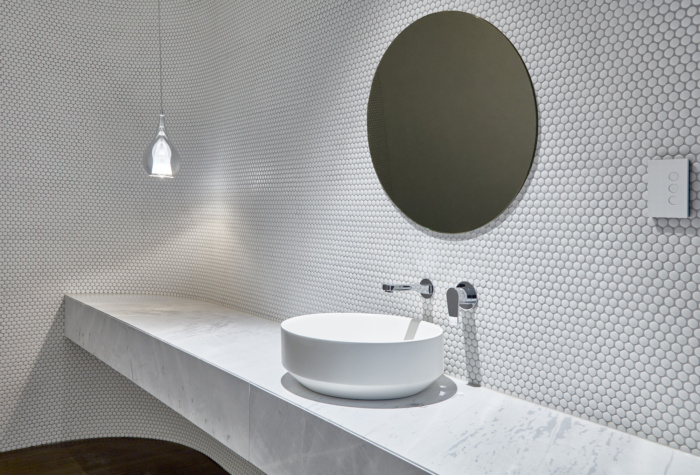Tudor Revival House
Protected by a heritage overlay, Warc Studio was tasked to upgrade the existing features of a Melbourne tudor while opening up the interior to the rear of the home.
This project is for alterations and additions to a wonderful two storey Tudor Revival residence that was originally constructed in Eastern Melbourne during the inter war period. It is located in an area that the practice director is highly familiar with, having attended school very nearby.
To our lament, over the last 20 years, much of the original housing stock in the area has been sanitised and replaced by ubiquitous “neo provincial” McMansions and “Palladian Masterpieces”. Fortunately, this residence with its features of picturesque massing and rustic façade treatment have been protected by a heritage overlay. We felt privileged to work on this building. The existing residence had already undergone numerous renovations to the rear which had left a series of “rabbit warren” passages that divorced the internal spaces from the rear garden and pool.
The brief requirements were to upgrade the existing facilities and open the interior to the rear of the house. The design intent was to create a series of new spaces that were derived from a contemporary interpretation of the existing picturesque massing and gabled roof forms. The rear two storey additions were derived by “borrowing” an existing asymmetrical gabled form from the side of the house and placing it on rear. A void was then cut into the asymmetrical mass to create an outdoor dining area. A solid / void dichotomy was subsequently created by placing the shape of the void form onto the existing garage to provide it with a useable area.
Upon entering the house, the existing rooms connected to the existing entry were all retained. A short new passageway was inserted beside the existing staircase to connect the entry hall with the new living spaces and rear garden. As a counterpoint to the somewhat heavy “Saxon” existing interior, this passage was lined with polished white panels that reflect light and mirror views from the rear garden. The living areas features: moments where the existing raw brickwork and openings have been retained; a series of built in cabinetry that frames the views to the pool; skylights to enable natural light to the spaces that typically have a Southern aspect, and; pivoting door panels that subtly open ancillary spaces to the laundry and powder rooms.
The outdoor dining area becomes a social hub that connects the interior and exterior spaces. It features a sunken dining area where the deck morphs into built in seating. Sliding door panels conceal a built in BBQ when it is not in use. An operable timber screen masks the West facing laundry façade to mitigate the passive solar radiation of the harsh Western afternoon light.
Sustainable measures employed on this project include: reuse of all available existing brickwork; use of second hand brickwork for any additional bricks; high insulation levels; double glazing to all doors and fixed windows; louvred windows to maximise cross flow ventilation; openable screening to the West facing laundry; locally and sustainably harvested hardwood flooring; low VOC floor finishes; hydronic heating.
Design: Warc Studio
Contractor: Big Fish Constructions
Photography: Aaron Pocock

